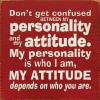Does this sentiment mean we won't get a depression and the market is bottoming here and now ?
An awlful lot of fear here. I think its one of those gut thingy primordial fear situations. I seriously doubt we get a "depression," but things could get very very painful for quite a few. We already have millions homeless, so I'm not sure what is new here unless these folks have been living in a cave. We will assuredly have many banks fail, but that in of itself doesn't mean we are in a depression. We had too darn many anyway, and people don't get [bleeeep] for their deposits. and there are millions who are unable to feed their families. The 25% unemployed. Not they may be onto something there, but I think our current stat's are misleading and when you look at how many folks are marginally employed or have to do 2 and 3 jobs, hitting the 25% is not a stretch. i still do not think that constitutes a depression.
Poll: 60% say depression 'likely'
Poll finds 6 of 10 believe a depression is somewhat or very likely - seeing 25% unemployed and millions homeless and hungry.
By Chris Isidore, CNNMoney.com senior writer
October 6, 2008: 1:18 PM ET
AMERICA'S MONEY CRISIS
NEW YORK (CNNMoney.com) -- Nearly six out of ten Americans believe another economic depression is likely, according to a poll released Monday.
The CNN/Opinion Research Corp. poll, which surveyed more than 1,000 Americans over the weekend, cited common measures of the economic pain of the 1930s:
25% unemployment rate
Widespread bank failures
Millions of Americans homeless and unable to feed their families
In response, 21% of those polled say that a depression is very likely and another 38% say it is somewhat likely.
The poll also found that 29% feel a depression is not very likely, while 13% believe it is not likely at all.
Economists, even many of those who feel current economic risks are dire, generally don't believe another depression is likely.
A survey taken last week by the National Association of Business Economists asked members what would happen if the $700 billion bailout that passed Friday fails to fix frozen credit markets. The consensus forecast of those economists was that unemployment would rise to 7% in the second quarter of next year even with continued problems choking off credit to businesses and consumers.
Other economists recently contacted by CNNMoney.com said that the unemployment rate could rise as high as 10% to 12% next year if the bailout does not work. While that could be roughly double the current 6.1% unemployment rate, it would be only half of the worst rate seen in the depression.
The Great Depression of the 1930s also saw the gross domestic product, the broad measure of the nation's economic activity, plunge by 13% in 1932.
The NABE survey forecast that GDP will drop 1.1% in the fourth quarter of 2008 if the bailout does not get credit flowing again, and another 0.5% in the first quarter of next year. The economists surveyed by CNNMoney.com said they saw a drop of 2% to 4% in a worst case scenario.
Part of the reason for the far less severe economic pain expected this time is there are many social safety net programs not in place at the start of the Great Depression, including Social Security, unemployment insurance and insurance on bank deposits.
And experts on the Depression believe that the Federal Reserve and other officials made many policy mistakes that are not likely to be repeated. (now this is highly disputable )In fact, the Fed at that time kept lending tight, while today's Fed is pumping hundreds of billions of dollars into the banking system to try to restart lending and spur economic activity.
Still, other views of Americans found in the CNN poll were more in agreement with those of top economists.
It found 84% of Americans polled believe that economic conditions are somewhat or very poor, with a majority, 53% now believing the economy is very poor. That's not far off from the two thirds of NABE economists who believe the economy is now in a recession or will enter one by the end of this years.
The view of the economy is much bleaker than a comparable CNN/USA Today poll found during the last economic downturn at the start of the decade. During the recession of 2001, only one third to one half of those polled felt economic conditions were somewhat or very poor.
Unemployment continued to rise after the recession ended in late 2001, and not surprisingly the view of the economy continued to deteriorate. But at its worst, in a February 2003 poll, only two thirds of those surveyed described the economy as somewhat or very poor. Only 25% of those surveyed at that time described the economy as very poor, or less than half the level who believe that today.
In addition, the CNN poll released Monday found that 36% believe the current crisis in the nation's financial sector will affect them immediately, while another 19% expect to be affected within the next year. Only 8% believe they will never be affected by the crisis.
That view of the impact of the credit crisis is in keeping with the warnings of the nation's top economic officials, including Treasury Secretary Henry Paulson and Fed Chairman Ben Bernanke, who continually warned that the credit crisis would be felt on Main Street, not just Wall Stree

ok all you sentiment analysis folks & contrarians
Started by
nimblebear
, Oct 06 2008 02:03 PM
No replies to this topic











